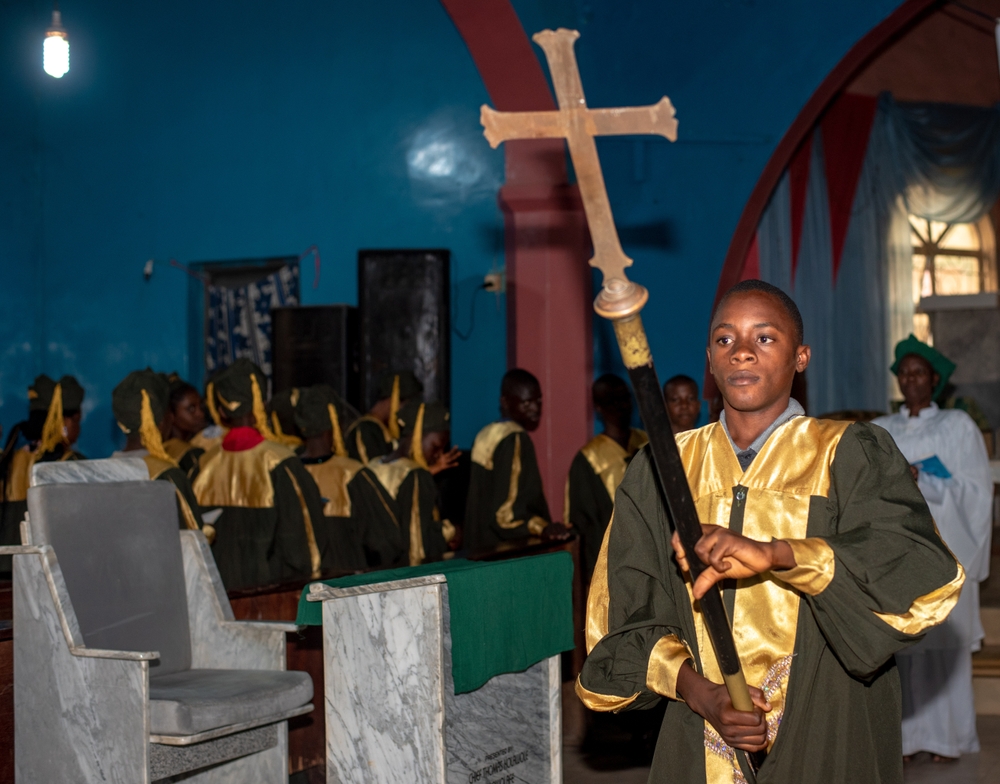Nigeria faces growing tension after U.S. President Donald Trump ordered the Pentagon to prepare for possible military intervention. Trump warned that continued attacks on Christians could trigger immediate U.S. action. “If the Nigerian government allows Christian killings, the U.S. will cut all aid and may go in ‘guns blazing,’” he said online.
Trump added that any strike would be “fast, vicious, and sweet,” claiming it would target “terrorist thugs attacking our cherished Christians.” Nigerians reacted with anger and confusion, while some viewed Trump’s statement as political posturing.
President Bola Ahmed Tinubu rejected any foreign threat but expressed readiness to discuss counterterrorism cooperation with the U.S., provided it respects Nigeria’s sovereignty. “Nigeria is not a religiously intolerant country,” Tinubu said on X, countering Trump’s characterization.
Nigeria Responds to Global Scrutiny
Tinubu’s spokesperson Daniel Bwala said Trump’s words might represent a negotiation tactic, emphasizing existing intelligence and defense ties between both nations. Still, the issue of Christian persecution remains deeply rooted. Amnesty International reported in May that jihadist violence has killed over 10,000 Nigerians since Tinubu took office.
Nigeria’s 220 million citizens remain almost evenly divided between Christians and Muslims. Groups like Boko Haram and Islamic State West Africa Province continue targeting civilians in the north. While Washington frames the crisis as a “Christian genocide,” many Nigerians argue it is far more complex. Analysts say Muslim communities also suffer heavily from extremist violence.
Some Christian leaders disagree. Reverend Ezekiel Dachomo insists Christians face deliberate extermination. “A massacre is happening, and attempts to deny it come from the government,” he said. Groups such as Open Doors and International Christian Concern report more than 7,000 Christian deaths in 2025, labeling the attacks as targeted persecution.
Motives Behind U.S. Action Questioned
Trump’s warning follows U.S. Senator Ted Cruz’s call to label Nigeria a violator of religious freedom. While some Nigerians, like broadcaster Cyril Abaku, support international help against terrorism, others remain wary. “If outside forces want to help secure our communities, we should accept it,” Abaku said. “Terrorism is global, and we need allies.”
However, many fear Trump’s threats mask ulterior motives. Analysts suspect Washington’s interest may extend beyond humanitarian aid to Nigeria’s rare earth reserves—resources vital for defense, renewable energy, and electric vehicles. The insurgency-hit northeast holds rich deposits of lithium, cobalt, nickel, copper, and neodymium.
Human rights activist Omoyele Sowore rejected foreign intervention. “Nigeria doesn’t need a saviour from abroad,” he said. “We need accountable leaders who protect citizens and end corruption and violence.”
The U.S. previously labeled Nigeria a “country of particular concern” in 2020 for violating religious freedom, though that designation did not specifically reference Christian persecution.



